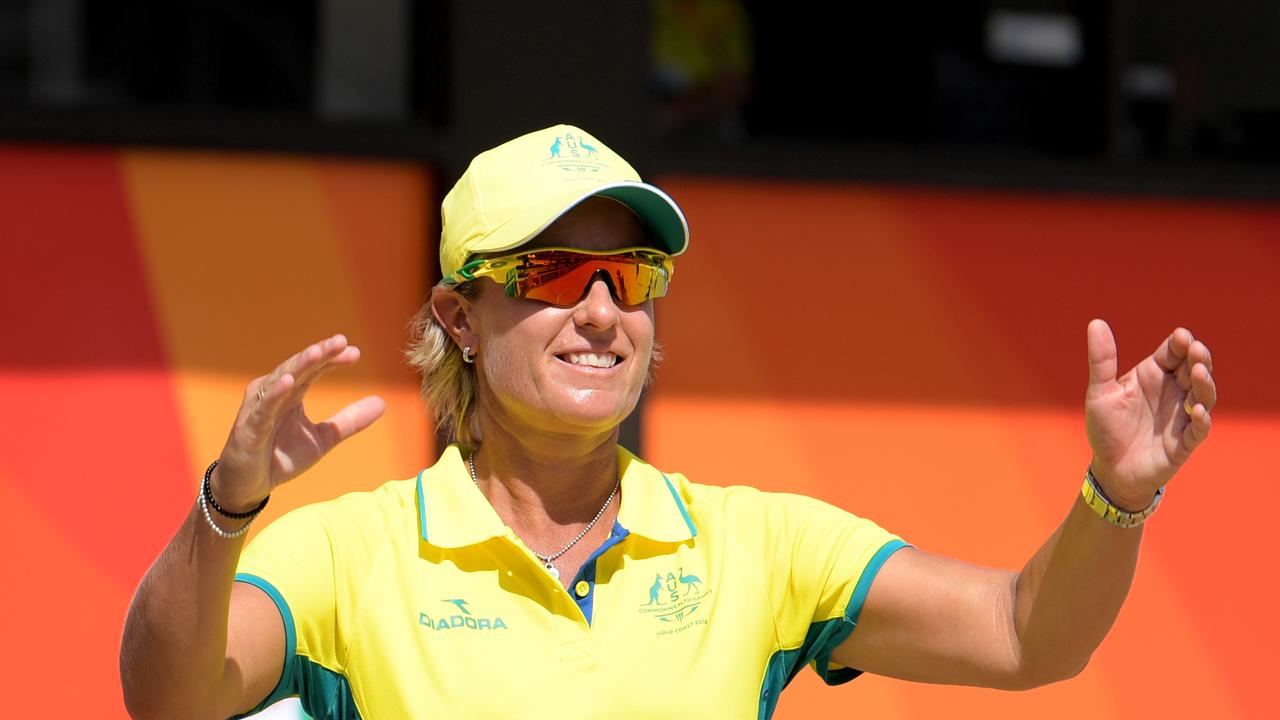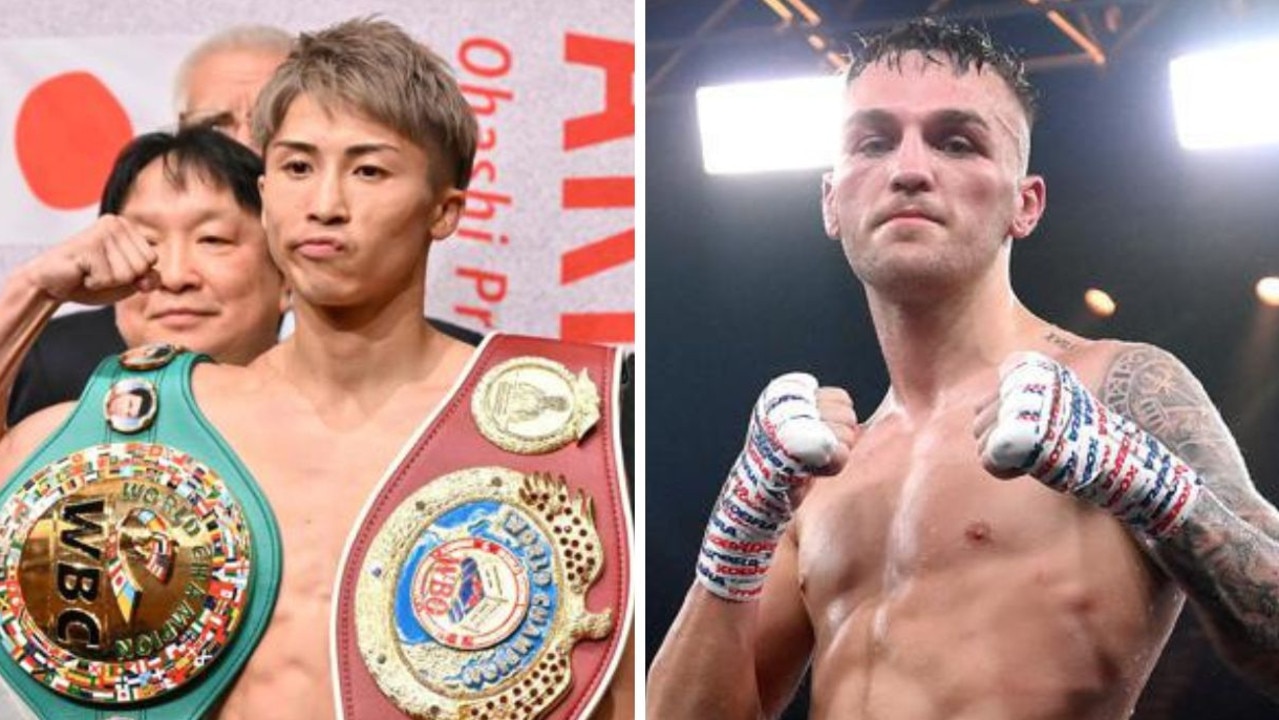Manly junior players unite as debate continues on junior rugby league rules changes in 2023
As a petition calling for the overhaul of rules set to come into junior footy in NSW, young players across a number of Manly clubs have come together to voice their concerns at the changes.
Sport
Don't miss out on the headlines from Sport. Followed categories will be added to My News.
THE fabric of junior rugby league in NSW is set for the biggest shake-up the game has ever seen.
A number of changes will come into effect on a rolling basis from 2023 onwards on the back of the framework set out by the Australian Rugby League Commission.
One major change is U6s switching to a tag-only format for the entire season, with U7s playing tag and completing the ‘Tackle Ready’ program until June.
Another that has faced heavy social media backlash is the extension of development competitions up until U12s, meaning no grand finals until playing in U13s by 2026.
Such is the feeling towards the new additions, a petition has been started against the changes, securing over 6000 signatures already.
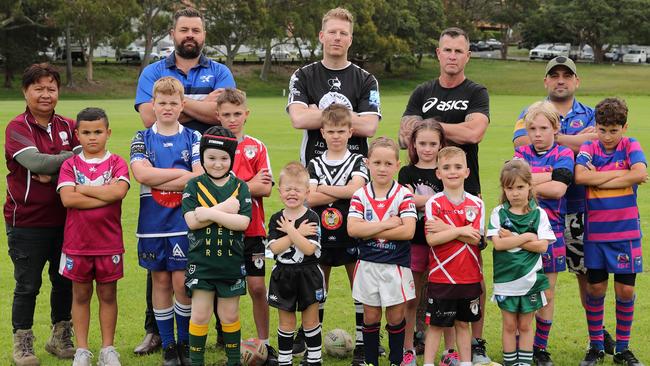
“There are so many games you can be involved in that support rugby league but don’t have tackling, Touch Football and OzTag are at the front of my mind. Parents make a choice to get their kids involved in Rugby League if they wanted a non contact sport they can choose either of the above,” petition starter and Harbord Devils official Amy Smith said in the description.
“We are the ones involved in the clubs, the early mornings, trainings and volunteering, no one has asked us. Why are these decisions being made without consulting the people who keep this game alive?”
A statement from NSWRL community football manager Peter Clarke sets out the changes and explains the rationale behind the decision.
“The National Development Framework is a game-wide participation initiative developed and approved by the Australian Rugby League Commission,” it read.
“It is important to note that in development competitions, scores are still maintained and children are encouraged to compete and try their best, learning valuable lessons on winning and losing but not playing for a premiership (and there are no ladders).
“The developments are key in encouraging the safety, wellbeing and retention of participants.”
It also highlights using the changes implemented in Queensland as an example, with participating increasing in both boys and girls divisions.
An NRL spokesman added the player development framework was approved by the ARL in 2019 and overseen by “Rugby League experts including NRL coaches, former players and senior management”.
“It provides national guidelines including the TackleReady program and development competitions.”
“TackleReady is our program that teaches correct and safe tackle techniques, preparing participants for tackle versions of rugby league.
“The program aims to provide participants with a systematic introduction to tackling and being tackled, leading to a greater level of enjoyment.
“TackleReady is based on research, trials and feedback, the results of which found 85% reported increased confidence and 86 per cent increased competence.
It also provides entry level club coaches with the necessary skills and gives parents peace of mind by highlighting the game’s commitment to offering a safe, inclusive environment.
“Development competitions see players learning to win and lose but they do not play to win a premiership.
“Development competitions allow coaches to focus entirely on technical, tactical, physical and social development in their players. Highly pressured premiership environments have been determined to be the major reason players exit our game in these age groups.”
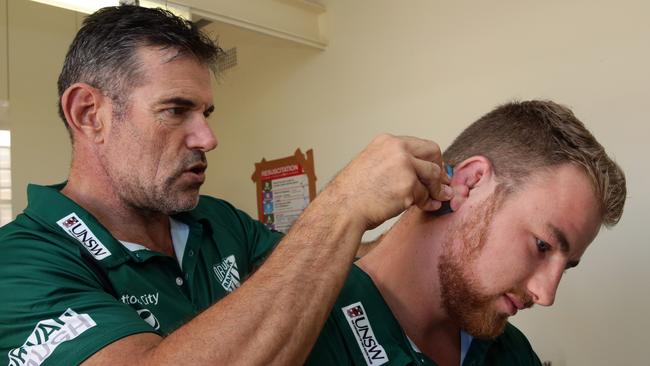
One expert believes the proposal doesn’t go far enough, calling for tackling to not be introduced into the sport until the teenage years.
“It’s not just the big hits or getting knocked out. Every single blow in your life adds up,” concussion researcher Dr Adrian Cohen said.
“We want kids to play sport. There’s lots of positive impacts. But we want to decrease the total number of times they’re hit in the head.
“I applaud the fact they’ve brought it in for U6s, but they need to go one step further.
“In the US they play flag football until 14 and we should be doing the same thing here. Even in soccer they’re not allowed to start heading the ball until 12.
“The key message is to stop hitting kids in the head.”
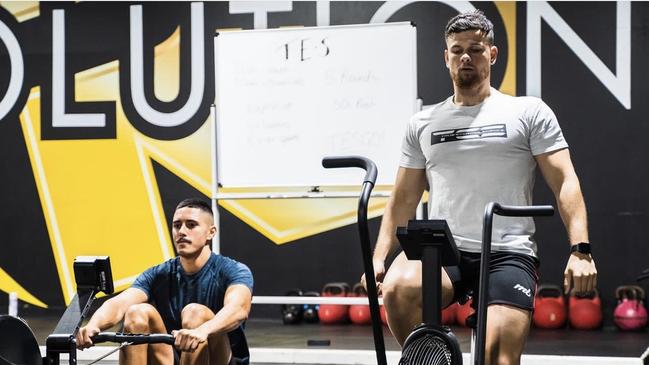
Meanwhile, Exercise and sport science specialist, Clayton Karaka from True Exercise Science, said budding footy starts could learn tackling technique from a young age to “not only to perfect the technique, but prevent injury in the long run”.
“If you restrict the technique of learning to tackle to players over a certain age limit, you may be restricting the capabilities of that player when they take on an opponent as a teenager or in representative sport,” he said. “The longer you train a muscle in a certain technique, the safer you are able to perform that movement in high-pressure situations.
The Western Sydney-based personal trainer, who has a degree in sport and exercise science, said young athletes currently learn to perfect techniques off the sporting field “through safe measures like tackling bags and positioning to prevent injury”.
“By practicing the repeated movements of tackling at a young age, you are strengthening the muscles in preparation for these same techniques later in life,” he said.
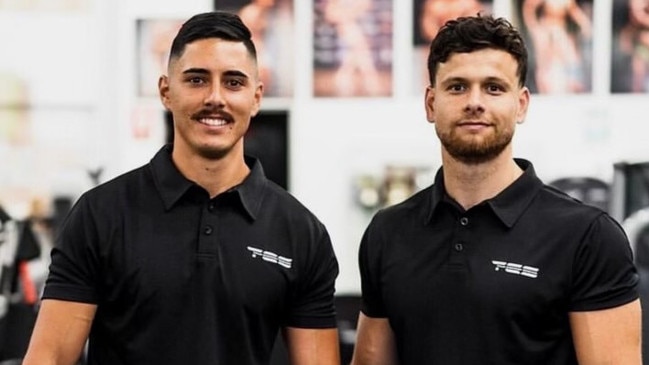
Fellow Harbord official and former The Biggest Loser personal trainer Shannan Ponton is on board with the petition, and said the proposed changes aren’t backed by science.
“As a personal trainer and in high performance, I don’t believe the agenda is based on any science,” he said.
“Most kids in U6s weigh between 18-25kg and they run somewhere between 6.5-7.5 km/hr.
“The physics at that level, the two colliding forces are quite minimal. You teach kids at that age to put their head on the right side (in a tackle). If they get it wrong, the corresponding damage is minimal.
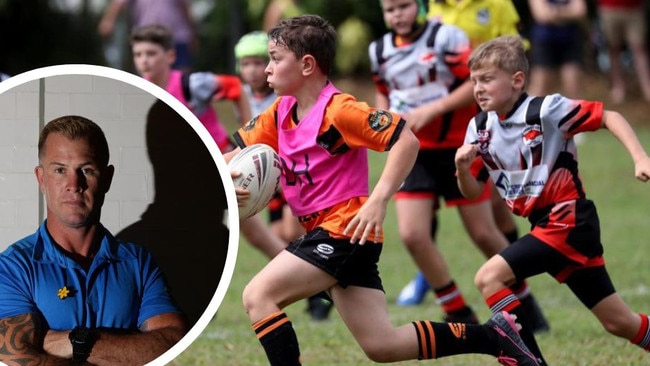
“I’ve never seen a concussion or player knocked out under the age of 12. That’s spanning 42 years in rugby league.
“If league holds off (tackling) until they are nine years old, by that time they weigh between 30-65kg and most can run between 10-14 km/hr.
“The net damage that can be done with that physicality is enormous, particularly when they have no natural ability to tackle to fall back on.
“It goes against I understand in sports science.”
Ponton believes there are other options for parents who don’t want to put their kids in rugby league
“If I didn’t want to put my kids in rugby league, they could play OzTag or touch,” he said.
“It’s a contact sport, and in my mind it’s one of the beauties of rugby league. If parents are erring on the side of caution, they will have that same phobia at nine.
“I coach U6s, I’ve coached U10s and done strength and conditioning with A-grade. I’m not a Neanderthal. I love the balances the NRL is putting in place in terms of concussion and taking people out of the game there.
“It gives you solace looking into the future and knowing your kids will have that safety mechanism in place.
“But I think this is a step too far.
“Having good coaches from an early age teaching correct technique (is the solution). It’s unnatural to put your body in front of a body moving towards you at a greater force.
“But once you get a hold of it, it’s an empowering dynamic. It helps overcome fear and trepidation, and controls the mind to get a positive outcome.”
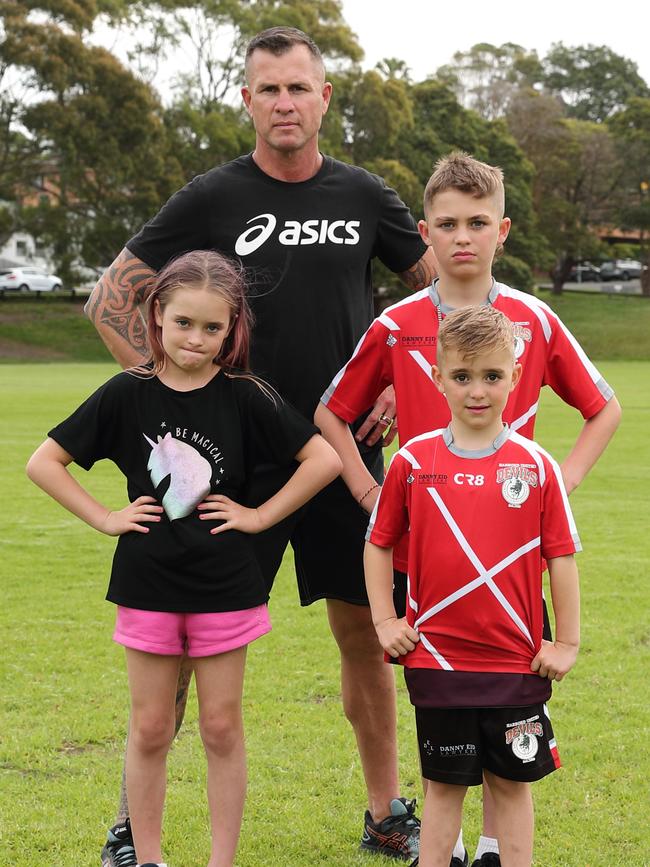
He also said the decision to scrap finals for the younger grades takes away vital life lessons that participants experience with both the highs and lows of sport.
“They’re trying to water it down and push the woke agenda of no winners and no losers,” he said.
“It’s not in the best interests of kids to prepare them in life. In life there is winning and losing.
“The earlier kids become equipped with being able to win and lose in a dignified fashion is imperative.
“I still remember losing grand finals as a kid. That loss can be the fuel to your fire to create a winning desire the next year.”
More Coverage
Originally published as Manly junior players unite as debate continues on junior rugby league rules changes in 2023



